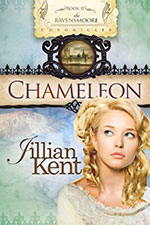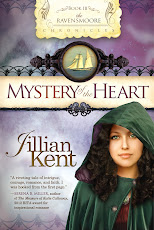Two time Pulitzer Prize winner David McCullough fascinates me both as a reader and a writer. One of my friends at work asked me if I'd watched the extra features at the end of the John Adams DVD. I typically do watch all the bonus material at the end of these movies but for some reason hadn't got around to it. I don't think I even realized it was on this particular DVD. If you get the chance you must watch it, he's so very personable and inspiring. I found the videos on YouTube and you can see them listed below. I wish I had a version of his world headquarters in my backyard. :) Painting With Words Part 4 This section is wonderful for writers but the entire thing is awesome!
Painting With Words Part 1
Painting With Words Part 2
Writing With Words Part 3
A few thingst I've learned or been reminded of by David McCullough.
1.) Find your favorite work space. That may sound simple but it's not for some of us. I recently lost my workspace because we needed an extra bedroom at home so now my desk is in the dining room. Noise cancelling headphones and possibly a room screen will soon be part of my world headquarters.
2.) "You can only learn by doing it. You can't learn to write without writing."
3.) "History is about life, about change, about consequences, cause and effect . . . it's about music and poetry and drama and science and medicine and money and love . . " This man knows how to make history fun.
4.) "Marinate your head in the time and culture you write in."
5.) Excel.
6.) "The work is the reward."
7.) Develop a list of ideas that you want to write about eventually.
8.) Sing a song even if it is off key. :)
9.) "Count your blessings."
10.) "The pen and the voice died on the same day. Jefferson and Adams died on the same day, July 4, 1826, the 50th anniversary of the Declaration of Independence."
I think artists of all kinds will love his new book, The Greater Journey. You can see a video trailer here, Author Page, and listen to him talk about the book.
In one section of the video McCullough talks about being a fly on the wall in one favorite place in history. If you could choose only one place to be a fly on the wall in history what event would you choose?
Hey! I've moved. You'll be directed to my new blog in 3...2...1...
Transition Time: Back to the Day Job
Tuesday, July 19, 2011
THE TIME FACTOR
We all have the same number of hours in a day. So why is it that some people are so much better at organizing their time than others? This is something I still struggle with but I'm getting better. Believe it or not I actually manage my time better when I work my day job. I like to think in terms of self-management rather than time managment. I agree with the concept of being able to manage myself better than mangage my time. Still it's all related, I just have to find a way that works for me and my creative brain. There's no sleeping in on the days I report for my day job. When I'm off I don't get up early because I write late. It's a different kind of schedule, no right or wrong, just different. The problem of sleeping in when I'm off is that other matters regarding family needs can arise, running errands, household chores. When I'm off I feel more of a responsibility to do all these things and more because I don't feel like I do enough at home when I'm working. I think that's one of the hardest things for younger writers who stay at home and are raising children. This leads to another aspect that can sneak up on us.
THE ENERGY FACTOR
This is important to keep going through the day. I'm not a morning person, but because I have to get up early for the day job leads to being really tired at night, which is when I enjoy writing most. So that means it's time to adjust when I return to the day job. In order for me to have energy in the evening I have to exercise at lunch time or after work. If I don't, I pay the price and that's ususally in the loss of time to write. You can see where this can become a problem. Also, it's important to set boundries. Time and energy issues can lead to the next bump.
THE ORGANIZATION FACTOR
In order to save money this year I'm going to carry my lunch. This will help me save up for a new computer. The cafeteria at work is just getting too expensive. But in order to carry my lunch I have to find time to pack it the night before work, along with getting my clothes ready, making dinner, taking care of the critters, and all those other things that need done. It ususally helps me to get the most complicated thing done first and if I do that then I probably won't procrastinate, which can throw my day off. This leads me to the next factor. Dare I say it?
THE GOAL SETTING FACTOR
Yep. I think this is probably where I should start. Where all of us should start that want to be productive. When my daily goals start to blur that's when I know I'm in trouble. So it's well worth taking the time to open our planners or get out our calendars, or whatever technology you're using these days to stay on target. I like to set weekly and monthly goals and within those I pick one bad habit to try and change monthly, nothing huge. Then I work at chunking these down into bite size pieces, and yes I am one of those people who like to check things off that I've accomplished. :)
THE PRAYER FACTOR
Charles Stanley reminds us that prayer is our most powerful form of saving time. You can print out his 15 recommendations for making our time productive here: Prayer:Our Time Saver
So these are some of the issues that I know that are important for me to tackle as I transition back to work. What strategies work well for you whether you work at home or outside the home or both?
Meet Jeannie Campbell, The Character Therapist
Tuesday, July 12, 2011
I want you to meet a very special person today. I call her the therapists' therapist. :) For me anyway. I've been counseling for thirty years, but as a writer, maybe especially as a writer I need someone with Jeannie's skill set. One of the passions that she and I both share is "helping those not afflicted with mental disorders understand those who are." Jeannie helped me pin down some of my heroine's motivations in Secrets of the Heart. I'm sure I'll be utilizing Jeannie's skills again soon in my next book as I go through the revision process for Chameleon. Please welcome Jeannie Campbell.
Jeannie the Therapist:
Jeannie Campbell is a Licensed Marriage and Family Therapist (MFC # 45366) in the state of California. She is Head of Clinical Services for a large non-profit in Humboldt County, and enjoys working mainly with children and parents.
Jeannie graduated summa cum laude from New Orleans Baptist Theological Seminary with a Masters of Divinity with Specialization in Psychology and Counseling and magna cum laude from the University of Mississippi with a double major in psychology and journalism. She has worked in a crisis pregnancy center, psychiatric hospital, drug rehabilitative program, several non-profits and homeless shelters, a foster family agency, and in private practice.
Jeannie the Writer:
Jeannie has been writing ever since she received a diary for her fifth birthday. She began writing angst-ridden middle-grade novels in junior high, often commandeering the family computer for hours on end. After eight years of higher educational pursuits, she moved onto adult contemporary romance and romantic suspense, frequently using her day job as a therapist to generate lots of fodder for her night job as a writer.
Two of Jeannie’s “therapeutic romance” manuscripts have garnered the high praise of being finalists in the Genesis Contest for unpublished writers, sponsored by the American Christian Fiction Writers (ACFW), of which she is an active member. She writes a popular monthly column for Christian Fiction Online Magazine and has been featured in many other e-zines, newspapers, and blogs.
My tag: "on online therapy service for fictional characters"
Often say: "Get some couch time" and "on the couch"
What is Character Therapy?
Character Therapy is what I do when I use my professional training and experience as a licensed clinician to evaluate and diagnose fictional characters.
How can you—a published or aspiring writer—benefit?
1) Write characters more realistically.
Using a search engine to find out information about a mental disorder yields a very different result than asking a therapist who has treated those same problems in real life. Instead of getting a bunch of stale facts, I can help you breathe life into your characters while taking into consideration your unique story world.
2) Plot more feasibly.
Plotting the external conflict around your character’s internal conflict is essential to create tension on every page. Understanding the character’s driving goals and motivation in relation to their emotional state will help you figure out what plot points need to occur to maximize the character’s arc to its fullest potential.
3) Avoid clichéd or incorrect depictions of mental disorders.
My passion is helping those not afflicted with mental disorders understand those who are. Since one in four adults have a mental disorder, the likelihood of one of your characters having one is pretty high. But you want every nuance to ring true about the character, not feel cardboard cutout or stereotyped. So pick my brain instead of yours to avoid pitfalls of re-writing later.
Have I piqued your curiosity? Think your characters might benefit from some couch time?
Website for a couch appointment: http://charactertherapist.com/
Jeannie the Therapist:
Jeannie Campbell is a Licensed Marriage and Family Therapist (MFC # 45366) in the state of California. She is Head of Clinical Services for a large non-profit in Humboldt County, and enjoys working mainly with children and parents.
Jeannie graduated summa cum laude from New Orleans Baptist Theological Seminary with a Masters of Divinity with Specialization in Psychology and Counseling and magna cum laude from the University of Mississippi with a double major in psychology and journalism. She has worked in a crisis pregnancy center, psychiatric hospital, drug rehabilitative program, several non-profits and homeless shelters, a foster family agency, and in private practice.
Jeannie the Writer:
Jeannie has been writing ever since she received a diary for her fifth birthday. She began writing angst-ridden middle-grade novels in junior high, often commandeering the family computer for hours on end. After eight years of higher educational pursuits, she moved onto adult contemporary romance and romantic suspense, frequently using her day job as a therapist to generate lots of fodder for her night job as a writer.
Two of Jeannie’s “therapeutic romance” manuscripts have garnered the high praise of being finalists in the Genesis Contest for unpublished writers, sponsored by the American Christian Fiction Writers (ACFW), of which she is an active member. She writes a popular monthly column for Christian Fiction Online Magazine and has been featured in many other e-zines, newspapers, and blogs.
My tag: "on online therapy service for fictional characters"
Often say: "Get some couch time" and "on the couch"
What is Character Therapy?
Character Therapy is what I do when I use my professional training and experience as a licensed clinician to evaluate and diagnose fictional characters.
How can you—a published or aspiring writer—benefit?
1) Write characters more realistically.
Using a search engine to find out information about a mental disorder yields a very different result than asking a therapist who has treated those same problems in real life. Instead of getting a bunch of stale facts, I can help you breathe life into your characters while taking into consideration your unique story world.
2) Plot more feasibly.
Plotting the external conflict around your character’s internal conflict is essential to create tension on every page. Understanding the character’s driving goals and motivation in relation to their emotional state will help you figure out what plot points need to occur to maximize the character’s arc to its fullest potential.
3) Avoid clichéd or incorrect depictions of mental disorders.
My passion is helping those not afflicted with mental disorders understand those who are. Since one in four adults have a mental disorder, the likelihood of one of your characters having one is pretty high. But you want every nuance to ring true about the character, not feel cardboard cutout or stereotyped. So pick my brain instead of yours to avoid pitfalls of re-writing later.
Have I piqued your curiosity? Think your characters might benefit from some couch time?
Website for a couch appointment: http://charactertherapist.com/
George III Loses America and His Mind
Tuesday, July 5, 2011
Hope your 4th was a great one! I enjoyed the awesome fireworks we watched last evening and am very grateful to live in the USA. However, I'm also a fan of Great Britain and its history.
I work in the mental health field and I'm fascinated and frequently appalled by the treatment of those who suffered from mental disorders throughout history. Whether or not you are familiar with what happened to King George III you might find this post interesting.
The Madness of King George
Nigel Hawthorne and Helen Mirren star in this incredible movie that released in 1994.
Some of my favorite lines from the movie. You can find more at the Internet Movie Data Base
George III: Six hours of sleep is enough for a man, seven for a woman, and eight for a fool.
[Pitt has given the King some papers to sign]
George III: What is this? America, I suppose.
Pitt: No, sir.
George III: Oh, America's not to be spoken of, is that it?
Pitt: For your peace of mind, sir. But it's not America.
George III: Peace of mind! I have no peace of mind. I've had no peace of mind since we lost America. Forests, old as the world itself... meadows... plains... strange delicate flowers... immense solitudes... and all nature new to art... all ours... Mine. Gone. A paradise... lost.
I found this next scene between the King and his doctor very sad and unfortunately accurate for the day.
Dr. Willis: If the King refuses food, He will be restrained. If He claims to have no appetite, He will be restrained. If He swears and indulges in MEANINGLESS DISCOURSE... He will be restrained. If He throws off his bed-clothes, tears away His bandages, scratches at His sores, and if He does not strive EVERY day and ALWAYS towards His OWN RECOVERY... then He must be restrained.
George III: I am the King of England.
Dr. Willis: NO, sir. You are the PATIENT.
How sad to think that King George may have actually been suffering the effects of arsenic poisoning. Read this: King George III: Mad or Misunderstood? and this: Porphyria or Arsenic?
Whether you are a reader or writer have you ever stumbled across something in history that just grabbed you by the throat and wouldn't let go? Your own magnificent obsession so to speak? That' me and the Regency era. What's your favorite time period in history? What country?
I work in the mental health field and I'm fascinated and frequently appalled by the treatment of those who suffered from mental disorders throughout history. Whether or not you are familiar with what happened to King George III you might find this post interesting.
The Madness of King George
Nigel Hawthorne and Helen Mirren star in this incredible movie that released in 1994.
Some of my favorite lines from the movie. You can find more at the Internet Movie Data Base
George III: Six hours of sleep is enough for a man, seven for a woman, and eight for a fool.
[Pitt has given the King some papers to sign]
George III: What is this? America, I suppose.
Pitt: No, sir.
George III: Oh, America's not to be spoken of, is that it?
Pitt: For your peace of mind, sir. But it's not America.
George III: Peace of mind! I have no peace of mind. I've had no peace of mind since we lost America. Forests, old as the world itself... meadows... plains... strange delicate flowers... immense solitudes... and all nature new to art... all ours... Mine. Gone. A paradise... lost.
I found this next scene between the King and his doctor very sad and unfortunately accurate for the day.
Dr. Willis: If the King refuses food, He will be restrained. If He claims to have no appetite, He will be restrained. If He swears and indulges in MEANINGLESS DISCOURSE... He will be restrained. If He throws off his bed-clothes, tears away His bandages, scratches at His sores, and if He does not strive EVERY day and ALWAYS towards His OWN RECOVERY... then He must be restrained.
George III: I am the King of England.
Dr. Willis: NO, sir. You are the PATIENT.
How sad to think that King George may have actually been suffering the effects of arsenic poisoning. Read this: King George III: Mad or Misunderstood? and this: Porphyria or Arsenic?
Whether you are a reader or writer have you ever stumbled across something in history that just grabbed you by the throat and wouldn't let go? Your own magnificent obsession so to speak? That' me and the Regency era. What's your favorite time period in history? What country?
Subscribe to:
Posts (Atom)

























